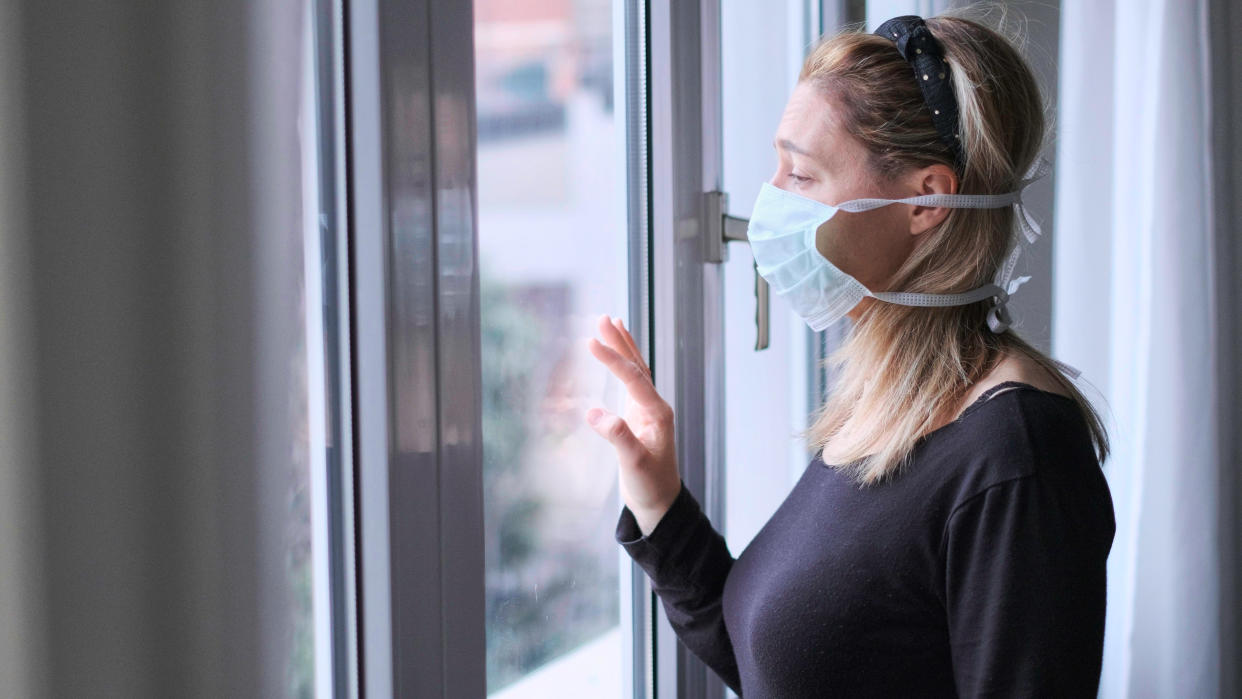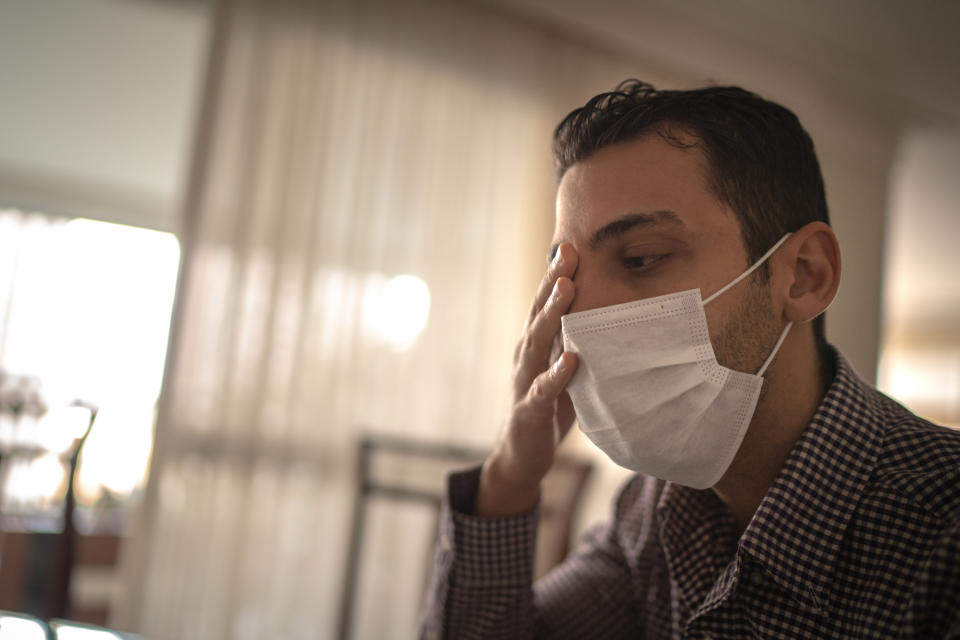Why you shouldn't ignore feelings of stress during the coronavirus pandemic

Anna Williamson is a life coach, counsellor, author and TV and radio broadcaster best known for presenting E4’s Celebs Go Dating. Here she gives advice on paying attention to mental health during the coronavirus pandemic.
We all have to take care of our mental health but there are certain times in life where we need to give it some extra TLC - and ignoring the problem won’t make it go away.
As a campaigner for mental health awareness for the past decade, I’ve never been more passionate about the cause as I am now.
Being stuck in a coronavirus lockdown isn’t much fun for anyone. It’s odd, really, when you think how this disease has impacted the whole globe.
And it’s pretty overwhelming if you dwell on the virus too much - so my advice, my friend, is don’t.
We need to be sensible, of course. We should absolutely listen to the advice to keep us and our loved ones safe, but we should turn a spotlight on our emotional and mental wellbeing at this time, too.
Many people are experiencing, for the first time, the niggles of their mental health feeling fragile, and there are of course millions of people already diagnosed with mental illness who are perhaps feeling a flare up at this tricky time.
Having pretty much successfully weathered GAD (Generalised Anxiety Disorder) for a number of years and, more recently, a rather rubbish bout of pre and post-natal depression, I know I am feeling the strain more now, mentally, than I otherwise would.

Read more: Four simple tips to help reduce anxiety in these uncertain times
Thankfully, I have excellent coping strategies in place. I have a terrific doctor and peers should I ever need some assistance, and I have spent several years researching and learning about mental health as a life coach and therapist.
However, I’m only too aware how tough many are finding it at present with the uncertainty that COVID-19 has brought with it.
It’s OK to not feel OK. It really is. There is no shame or embarrassment in ever admitting you’re feeling under par and perhaps needing some help.
Asking for help can be one of the hardest things, particularly for men statistically, but there is only admiration for reaching out to someone trusted to say: ‘I need some help’.
It doesn’t mean you’re necessarily unwell, or have a serious mental illness (in fact, usually far from it), but a lot of mental health issues develop over time as a result of ignoring the early warning signs.
Niggles of stress, worry, pressure, anxiety, upset - which are all perfectly healthy and normal feelings to experience - can sometimes develop into something much bigger, which perhaps could have been avoided at its grass roots.
These emotions can persist and escalate if they are left undetected or dealt with over a period of time.
Charities and mental health services are under strain at the best of times, but there is undoubtedly a surge in people needing some extra support during this pandemic. My own DM’s have been on fire from those in need of an understanding ear.

Read more: How to talk to your kids about coronavirus without worrying them
The good news, though, is that we can all be our own best advocate for our mental and emotional health.
You know yourself better than anyone, so ask yourself each day ‘how am I?’ and answer the question honestly.
Everyone has off days, it’s normal and healthy. We can’t be skipping into the sunset everyday; it’s not practical or the reality of day-to-day life.
But if an ‘off day’ becomes an ‘off week’, if you’re feeling tearful, losing interest in daily activities, having sleep or appetite troubles, feeling more anxious or sad than not, feeling irritable and unable to cope, then don’t leave it locked away in your head.
Reach out to someone you trust and tell them how you’re feeling. Your GP, charities such as Mind and Samaritans are all there if you’d prefer to tell someone slightly removed from your situation.
Talking sounds so simple, but it really is one of the best ways to help yourself, and help others help you.
I’m a big believer in the phrase ‘a problem shared is a problem halved’.
If you’re feeling like things are getting a bit on top of you, don’t suffer in silence, identify who to talk to, and go for it. You won’t regret it.
If you are struggling and need to talk, Samaritans are there to listen 24 hours a day, 365 days a year. Call 116 123 for free.
Follow Anna on Instagram, Facebook and Twitter.


